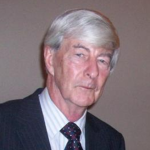Ebola in Sierra Leone: News from the Frontline – By Peter Penfold

 I have been in Sierra Leone now for two weeks. During my last visit in April the first cases of Ebola had appeared. Deaths had already been reported and before that in the neighboring countries of Guinea and Liberia. Only MSF (Medicins Sans Frontieres) were warning of the seriousness of the outbreak but at the time no one was heeding the warnings, neither the local governments nor the international community.
I have been in Sierra Leone now for two weeks. During my last visit in April the first cases of Ebola had appeared. Deaths had already been reported and before that in the neighboring countries of Guinea and Liberia. Only MSF (Medicins Sans Frontieres) were warning of the seriousness of the outbreak but at the time no one was heeding the warnings, neither the local governments nor the international community.
Since then the Ebola virus has ravaged this part of West Africa. There have been nearly 21,000 reported cases and over 8,000 reported deaths. Disgracefully but sadly not surprisingly, it took a couple of incidents affecting the UK, US and Spain before the rest of the world woke up to the danger and help started to arrive in sufficient numbers financially and logistically. Now, as the numbers of infected people in Guinea and Liberia appears to be tailing off, here in Sierra Leone they continue to rise, albeit at a slower rate. As at the beginning of 2015 there had been 9,700 cases and 2,557 deaths, including 221 health care workers, who are in the forefront of the efforts to combat the disease.
I visit Sierra Leone regularly two or three times a year. Compared to my previous visits there are a number of tell-tale signs to indicate that this is now an “˜Ebola country’. Immediately upon arrival at the airport one is subjected to having your temperature taken and the washing of hands in chlorine water.
When I was here during the rebel war in the late 1990s one was used to seeing young men going around carrying guns. Now the AK47s have been replaced by “˜temperature guns’ which fire laser beams at your forehead to give temperature readings. (One of the early signs of Ebola is high fever, although, of course, the readings cannot distinguish between Ebola fever or malaria and all the other numerous prevalent ailments that can lead to high temperatures). Such checks are carried out by teams of workers as one enters any building, e.g. hotels, restaurants, banks, offices, etc, and at improvised road blocks.
Another obvious tell-tale sign emanates from the “˜no touch’ policy; perhaps not so apparent to the first-time visitors from Britain where the practice of hugging and embracing in public is not so widespread. But here in Sierra Leone this is how one greeted friends and acquaintances. I made a mistake on arrival. Spotting an acquaintance at the airport, I was immediately hugging them before I was reminded, politely, that this was no longer done. I have had to get used to nodding one’s head or tapping your heart with one’s fist.
The influx of personnel from the international agencies and NGOs is very apparent. Many more white faces and scores of white four-wheel drive vehicles emblazoned with their distinctive logos of the Red Cross, SCF, UN, etc drive around, going past the multitude of posters and billboards warning of the dangers of Ebola.
And then there’s the “˜frontline’ vehicles – the ambulances and burial vans. In one day I can see more ambulances than in a whole month on previous visits; and the burial vans, at first seemingly innocuous looking like the regular “˜poda poda’ transport buses, (indeed until recently that’s what they were); but the covered windows and the absence of any number plates are the give-away that these vehicles have a different purpose, going to or carrying away the bodies of the dead Ebola victims to put them in the overflowing cemeteries.
Less apparent unless one goes looking for them are the various Ebola treatment centres dotted around, some in schools and old buildings, others purpose built such as that at the British built and funded Kerry Town Centre on the outskirts of Freetown.
Other than these tell-tale signs, life can appear as normal. Freetown is as crowded and bustling as ever with people walking around, shopping in the busy open air markets, chatting on the sidewalks. One significant difference, however, is the total absence of any school children. The children are around but hitherto it was such a common sight to see the thousands of schoolchildren in their identifiable smart colourful school uniforms walking to and from their schools. Now all the schools are closed.
Some attempts have been made by the government to replace school attendance with teaching lessons on radio and television but these are not available to all throughout the country. The impact of this loss of formal education upon the present youth generation could be incalculable, although government should be extremely wary of rushing the re-opening of schools. Younger children, more than most, find the “˜no touch’ policy difficult to follow, as I witnessed at church on my first Sunday here. There is a risk that one Ebola case could affect a whole school.
Of an evening the city takes on a different feel. From 6 o’clock all shops and bars and restaurants close. People are banned from congregating in large groups. Only the bars and restaurants of some of the larger hotels remain open, mainly for the benefit of their occupants and providing some relaxation for the numerous hard-working international personnel and visiting media. Most Sierra Leoneans just stay at home.
My wife and I usually come every year to welcome in the New Year in Sierra Leone. This year my wife remained in the UK and for me the New Year arrived unnoticed – no parties, no fireworks, no gathering on the Lumley Beach. The profoundly religious people of Sierra Leone were permitted to go to churches and mosques for early services but had to return to their homes immediately afterwards. As with the Christmas festivities a few days earlier, there were no celebrations. In effect, Christmas and New Year were cancelled this year in Sierra Leone.
Ebola now dominates the life of the country. Virtually every TV, radio or newspaper item is Ebola related, whether it’s reporting the latest deaths, the handing out of much needed assistance to the victims, the innumerable Ebola meetings and conferences or the endless visits from overseas dignitaries such as the UN Secretary-General, African Presidents, US Vice President, British Ministers and ex-Prime Ministers. Where before, most Sierra Leoneans followed every football score of the UK premiership, now they can recite the daily scores of new Ebola cases and new deaths from all around the country.
After a slow start, the UK now leads the international assistance in combatting the virus and the British effort, led by the dozens of dedicated, voluntary doctors and health care workers has made and continues to make a big difference. The decision by the British government to suspend direct air flights is the one blot on these efforts. Not only is it not helping the arrival of supplies and personnel, it leaves a somewhat sour taste in the mouths of Sierra Leoneans who feel they are being stigmatized by the country with whom they have such a close relationship.
Ebola dominates the economy. With the closing down of businesses and the laying off of staff, practically the only jobs available are Ebola related, whether it is working in the treatment centres, manning the telephone hotline, becoming members of the courageous burial teams, grave diggers, drivers for the Ebola agencies and NGOs – all of them funded by the huge influx of funds from overseas (around £350 million and growing).
There are some cautiously optimistic signs that this concerted effort is beginning to see the tide turning. As the cases are reported more speedily and those affected taken earlier to the treatment centres, there are increasing numbers of people recovering and becoming “˜Ebola free’. They are the victors in this war though the threat of stigmatization remains. Many still find it difficult to be accepted back into their communities. Safer burials are having a marked impact.
Some parts of the country, e.g. in the south and east, are seeing no new cases of Ebola; however, other areas, e.g. in the diamond mining areas around Kono, continue to see numbers rising. In such areas it has proved so difficult to persuade people to abandon their culture and traditions of touching and washing dead bodies, the single most significant cause of spreading the disease. In one instance alone, one Ebola case led to a further 36 people being affected.
The role of the Paramount Chiefs in getting the anti-Ebola messages across to the people has been crucial. Regrettably it took some time for the government and outside agencies to recognise this. Initially politicians were used for the public education programmes, but Sierra Leoneans, like most people around the world, find it difficult to always believe what a politician says!
Much hope has been placed upon the frantic search to find a vaccine cure and there are some encouraging developments; but most experts doubt that we will see suitable vaccines in sufficient numbers before the end of the year. Why it has taken the world so long to focus its energies on finding a vaccine for a deadly virus which has been around since 1976 is one of the big questions which the “˜experts’ will ponder in the no doubt countless reports that will emerge after the crisis is over.
Notwithstanding the positive signs, we cannot afford to become complacent. Sierra Leone will probably continue to live with the Ebola threat at least until the end of the year, albeit much reduced. However, already people are asking what happens after Ebola?
The last Ebola case (if such a situation arises) will leave behind a devastated country once again, just as we experienced at the end of the 11 year rebel war. It took years to recover from that, but progress was being made. At the start of 2014 the GDP was growing at 14%, one of the highest in Africa. The Minister of Finance now predicts growth at 4%, and may people feel he is being unduly optimistic. It is not just the health sector which has been destroyed, (not that it was up to much before Ebola,) but all sectors of the country’s development have been decimated – education, employment, infrastructure, agriculture.
Sierra Leone was, and potentially always will be, a rich country, the mainstay of which is its agriculture. A country which could feed itself and export crops, and yet now some experts are predicting a famine this year because farmers have not been able to plant their crops.
One hopes that when this Ebola country is Ebola free, the world will not think that the job is finished. It may be then that the most help will be needed to get this beautiful country full of courageous people back on its feet.
Peter Penfold is the former British High Commissioner to Sierra Leone (1997-2000) and author of “˜Atrocities, Diamonds and Diplomacy, the inside story of the conflict in Sierra Leone’.




